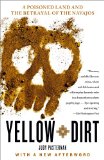BookBrowse Review
BookBrowse
The Shock Doctrine is a highly polemical book which, like all polemical books, will energize those already inclined to agree with her and will be quite easy for opponents to dismiss as exaggerated or histrionic. Read this book if you’ve been demoralized by the news from Sri Lanka after the tsunami, Iraq after the invasion, and New Orleans after the hurricane. The Shock Doctrine will give you a surprisingly long historical perspective from which to view the corruption and exploitation that all three recent events have prompted. The criticisms launched against Klein center on her unbalanced, unremitting attack on capitalism as the scourge of the planet. What these critics miss is that Klein specifically aims her weaponry at corporatism, the strand of capitalism that erases the line between government and business by turning over public wealth to private companies, thus enriching a few and impoverishing the masses...continued
Full Review
(1056 words)
This review is available to non-members for a limited time. For full access,
become a member today.
(Reviewed by Amy Reading).
Media Reviews
Dow Jones Business News - Paul B. Farrell
Hot tip: Invest in "Disaster Capitalism." This new investment sector is the core of the emerging "new economy" that generates profits by feeding off other peoples' misery: Wars, terror attacks, natural catastrophes, poverty, trade sanctions, market crashes and all kinds of economic, financial and political disasters.
To more fully grasp this new economy, you must read what may be the most important book on economics in the 21st century, Naomi Klein's
The Shock Doctrine: The Rise of Disaster Capitalism ....
New Statesman - Johann Hari
How can Naomi Klein top
No Logo, the most influential political polemic of the past 20 years? Her first book forensically studied the bloodstains that have splashed from the developing world's factories and "export processing zones" on to our cheap designer lives - and it spurred the creation of the anti-globalisation movement. Today, she has produced something even bolder: a major revisionist history of the world that Milton Friedman and the market fundamentalists have built. She takes the central myth of the right - that, since the fall of Soviet tyranny, free elections and free markets have skipped hand in hand together towards the shimmering sunset of history - and shown that it is, simply, a lie.
New York Times - Joseph E. Stiglitz
Klein is not an academic and cannot be judged as one. There are many places in her book where she oversimplifies. But Friedman and the other shock therapists were also guilty of oversimplification, basing their belief in the perfection of market economies on models that assumed perfect information, perfect competition, perfect risk markets. Indeed, the case against these policies is even stronger than the one Klein makes. They were never based on solid empirical and theoretical foundations, and even as many of these policies were being pushed, academic economists were explaining the limitations of markets — for instance, whenever information is imperfect, which is to say always.
Publishers Weekly
[A] powerful populist indictment of economic orthodoxy.
The New York Times - Joseph E. Stiglitz
She paints a disturbing portrait of hubris, not only on the part of Friedman but also of those who adopted his doctrines, sometimes to pursue more corporatist objectives.
Scotsman - Claire Black
The Shock Doctrine is hugely ambitious and eminently readable. Klein's thesis, drawing together disparate events, far-flung countries and competing ideologies, is cogent and clear, and although she stops short of answering the question as to whether violence is inherent to neoliberal ideology, or results from its implementation, she builds an utterly convincing case against the excesses and corruption of a system so exemplified by Bush, Cheney and Rumsfeld.
The Guardian - John Gray
There can be no doubt that fortunes have been reaped from the Iraq war as they have been from other experiments in disaster capitalism. Yet I remain unconvinced that the corporations Klein berates throughout the book understand, let alone control, the anarchic global capitalism that has been allowed to develop over the past couple of decades - any more than the neo-liberal ideologues who helped create it foresaw where it would lead. Rightly, Klein insists that free market ideology must bear responsibility for the crimes committed on its behalf - just as Marxist ideology must be held to account for the crimes of communism.
The Independent - Julie Wheelwright
Among the most haunting chapters are those dealing with the dismantling of Iraq. While the Bush presidency now seems mired in scandals, Klein takes little comfort in the comeuppance of his closest allies. "I wrote the book because I think we need to be talking about systems rather than individuals," she says. "My worry is that the danger of the Bush years is that these guys are so outrageous that the focus has just been on the bad apples. You gun, gun, gun to get Rumsfeld to resign; you gun, gun, gun to get Cheney to resign, and then do we really think this is going to change things?'
The Telegraph - Nicholas Blincoe
Did the American-educated economists behind Pinochet's reforms sign up before the coup, as Klein claims, or after, as they aver? Could the massacre in Tiananmen Square really have been a softening-up operation for economic shock therapy? Klein does not always get away with her most tendentious readings, but she often does. In part, this is down to sheer verve and, in part, because she has the self-damning quotations: an endless stream of inane politicians spoiling for a fight, talking about "shock and awe" and even praising Iraqi looters for their jump-start on the privatisation programme.
The Observer - Will Hutton
Klein is so anxious to prove that all capitalism is bad, even, on occasion, relying on torture to get its way, that she never allows for the possibility that markets can deliver beneficial results. Or that the demand for markets comes from the bottom up, as it did in China between 1980 and 1983. Nor, in her account of the shock treatment of the former communist Eastern Europe, does she explain why some countries - the Baltic republics and the Czech Republic - have done so much better than others.
So
The Shock Doctrine is a lost opportunity. It is hardly new that disasters and shocks are often triggers of change; her insight is to apply the thesis to turbo-capitalism and its ideologues. If Klein had been fairer, she would have had a smarter thesis that could genuinely have changed the intellectual climate. As it is, she will be dismissed by her critics as a confused ranter. We need critics of free-market fundamentalism to do better than that.
Booklist
Assiduously researched, energetically expressed, Klein's report bears an ideological perspective that won't leave readers neutral about her economic interpretations.
Kirkus Reviews
Required reading for anyone trying to pierce the complexities of globalization.
Reader Reviews
Jbeve
Well researched, and unbiased. The author unravels why America, as well as the rest of the world, is experiencing increasing inequality, the spread of privatization, globalization, and economic instability. She does this incredibly well, and refrains from blaming a single ...
Read More
mike smith
the shock doctrine This is a great example of leftist thinking gone horribly wonky. This writer sees right-wing capitalist evil in every move of the lefts, by now, boring and non-existent demons. Where is her rage at 50 million murdered in the Chinese communist's ...
Read More
Write your own review!



